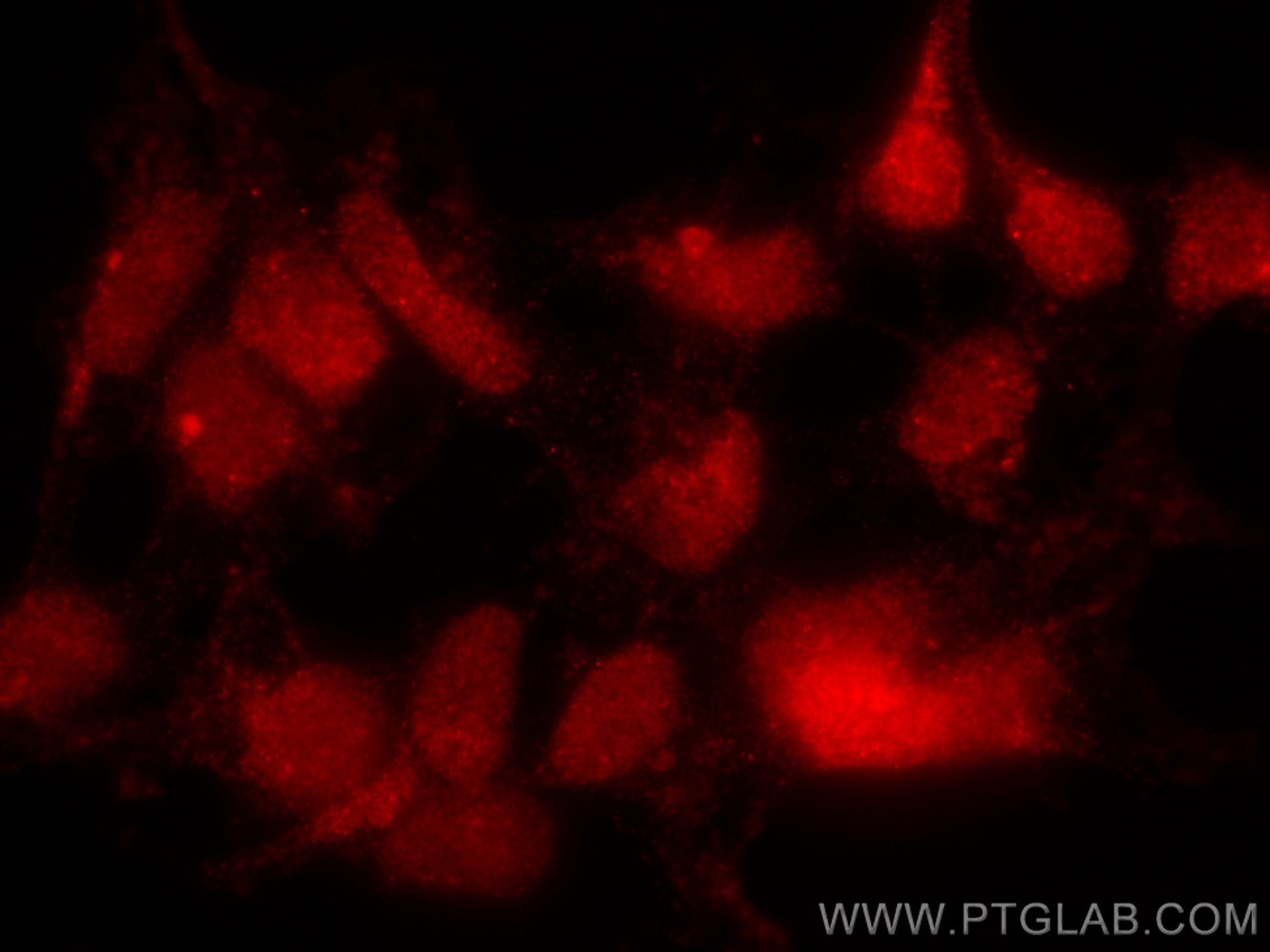TINP1 Monoklonaler Antikörper
TINP1 Monoklonal Antikörper für IF
Wirt / Isotyp
Maus / IgG1
Getestete Reaktivität
human
Anwendung
IF
Konjugation
CoraLite®594 Fluorescent Dye
CloneNo.
1E3B11
Kat-Nr. : CL594-66374
Synonyme
Galerie der Validierungsdaten
Geprüfte Anwendungen
| Erfolgreiche Detektion in IF | HEK-293-Zellen |
Empfohlene Verdünnung
| Anwendung | Verdünnung |
|---|---|
| Immunfluoreszenz (IF) | IF : 1:50-1:500 |
| It is recommended that this reagent should be titrated in each testing system to obtain optimal results. | |
| Sample-dependent, check data in validation data gallery | |
Produktinformation
CL594-66374 bindet in IF TINP1 und zeigt Reaktivität mit human
| Getestete Reaktivität | human |
| Wirt / Isotyp | Maus / IgG1 |
| Klonalität | Monoklonal |
| Typ | Antikörper |
| Immunogen | TINP1 fusion protein Ag8822 |
| Vollständiger Name | TGF beta-inducible nuclear protein 1 |
| Berechnetes Molekulargewicht | 260 aa, 30 kDa |
| Beobachtetes Molekulargewicht | 34 kDa |
| GenBank-Zugangsnummer | BC005288 |
| Gene symbol | TINP1 |
| Gene ID (NCBI) | 10412 |
| Konjugation | CoraLite®594 Fluorescent Dye |
| Excitation/Emission maxima wavelengths | 588 nm / 604 nm |
| Form | Liquid |
| Reinigungsmethode | Protein-G-Reinigung |
| Lagerungspuffer | BS mit 50% Glyzerin, 0,05% Proclin300, 0,5% BSA, pH 7,3. |
| Lagerungsbedingungen | Bei -20°C lagern. Vor Licht schützen. Nach dem Versand ein Jahr stabil. Aliquotieren ist bei -20oC Lagerung nicht notwendig. 20ul Größen enthalten 0,1% BSA. |
Hintergrundinformationen
TINP1 (TGF beta inducible nuclear protein 1) was widely expressed in various cell lines. TINP1 overexpression significantly promoted tumor cell proliferation, which may be associated with the downregulation of p53 expression. Furthermore, TINP1 promoted a number of cell lines to the S phase of the cell cycle. TINP1 promotes cell proliferation and significantly reduces p53 and p21 expression.
Protokolle
| Produktspezifische Protokolle | |
|---|---|
| IF protocol for CL594 TINP1 antibody CL594-66374 | Protokoll herunterladen |
| Standard-Protokolle | |
|---|---|
| Klicken Sie hier, um unsere Standardprotokolle anzuzeigen |


